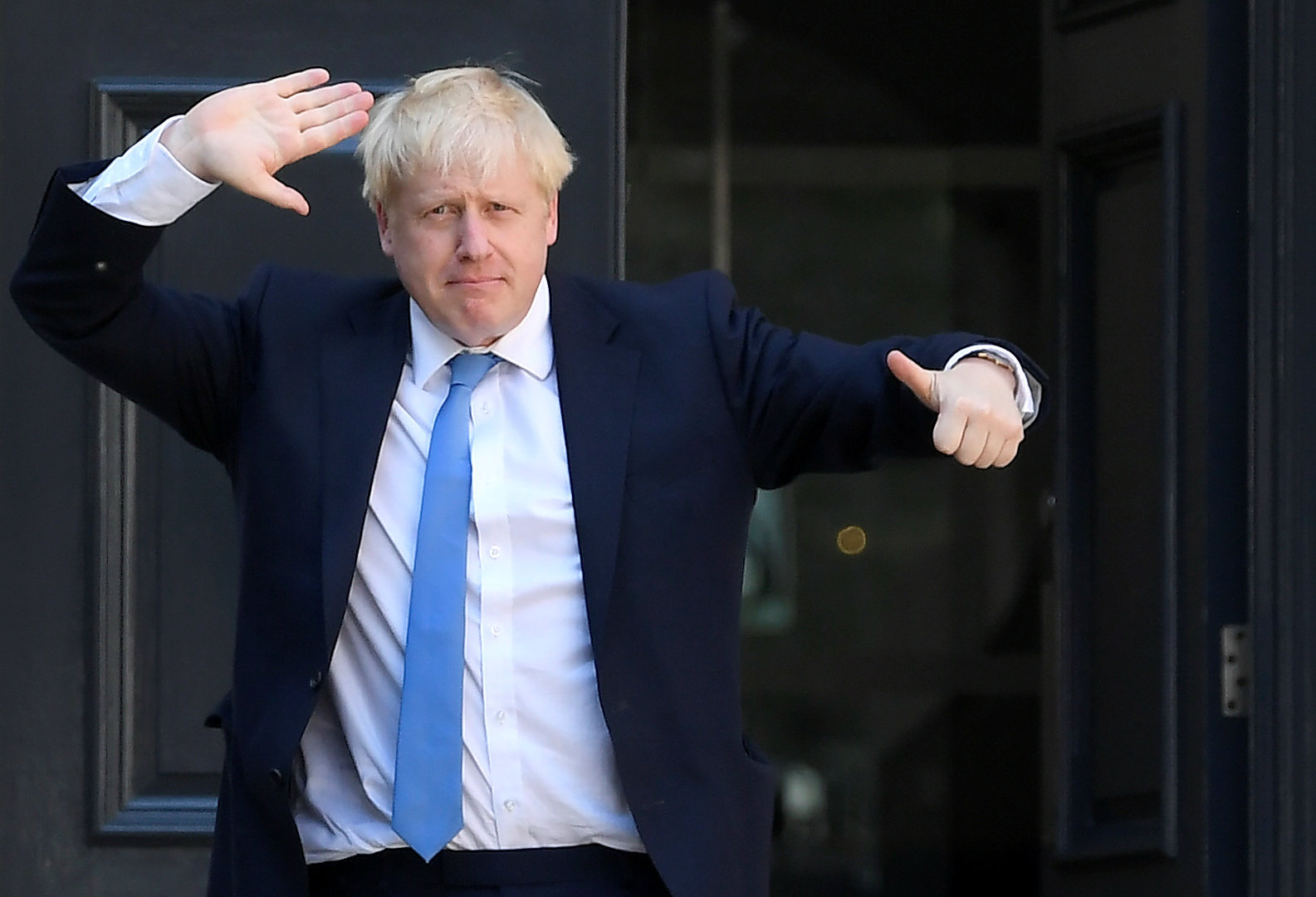Published
5 years agoon
By
Frimpong
Boris Johnson has said he owes his life to the NHS staff treating him for coronavirus.
The prime minister, 55, thanked medics at St Thomas’ hospital in London, where he continues to recover after spending three nights in intensive care.
It comes as UK deaths from the virus are expected to pass 10,000 on Sunday.
On Saturday, the UK recorded 917 new coronavirus deaths, taking total hospital deaths to 9,875.
Ministers are continuing to urge people to stay at home over the Easter weekend to curb the spread of the virus, despite warm and sunny weather across parts of the UK.
In his first public statement since being moved out of intensive care on Thursday, Mr Johnson paid tribute to the medics treating him, saying: “I can’t thank them enough. I owe them my life.”
Speaking as she led the government’s daily coronavirus briefing on Saturday, Home Secretary Priti Patel said the PM needed “time and space to rest, recuperate and recover”.
BBC political correspondent Ben Wright said that “No 10 does not want to speculate about when the PM might leave hospital or be back at his desk, but a return to work does not look imminent.”
“The prime minister is expected to rest and recover in the coming weeks and Foreign Secretary Dominic Raab will continue to deputise – and will be in charge when ministers carry out a review of the lockdown measures.”
It comes as 917 hospital deaths were recorded in the 24 hours up to 17:00 BST on Friday – the second day in a row that the figure has been over 900.
The number of new deaths announced on Saturday was slightly down on the previous day’s 980 deaths.
The growth of in the total number of new deaths has stalled in recent days, said Robert Cuffe, BBC News’ Head of Statistics – but it is too early to tell whether that number has stopped growing
“There have been reporting lags at weekends and it is possible that a Bank Holiday weekend will include deaths that go unreported until next week,” he said.
Spikes or dips may in part reflect bottlenecks in the reporting system, rather than real changes in the trend and these figures do not include those who have died in care homes or the community.
Meanwhile, a cross-party group of MPs and peers has demanded Parliament is urgently recalled in a virtual form – using video links and digital voting – so the government can be held accountable during the crisis.
Labour leader Sir Keir Starmer has requested urgent talks with Commons leader Jacob Rees-Mogg and Commons Speaker Sir Lindsay Hoyle to discuss Parliament resuming on 21 April so ministers can be questioned directly.
He said the Labour Party supported “many of the measures” implemented by the government but set out a list of questions that “need to be answered”.
They include clarity over an exit strategy from the current lockdown, answers over the “ramping up of testing”, and the supply of personal protective equipment (PPE) for front-line NHS staff.
A spokeswoman for Mr Rees-Mogg said Parliament would return on 21 April and technological solutions were being prepared for the government, Speaker and other parties to consider.
There’ve been so many grim milestones in this coronavirus outbreak but passing a death toll of 10,000 may prove one of the most shocking.
There are positive signs that the rate of infection is slowing, driven down by social distancing.
But the numbers dying every day may increase still further because some people who caught the virus three or four weeks ago may not survive intensive care now.
The scientists advising the government have long warned of this lag between measures to keep the public at home and a reduction in the daily death toll.
The expectation is that on current trends there will be a peak, perhaps in a week or two, though no-one can predict how long it’ll take after that for the losses to fall to low levels.
It all depends on the public’s response and so far officials say it’s been overwhelmingly supportive.
Source: BBC

























